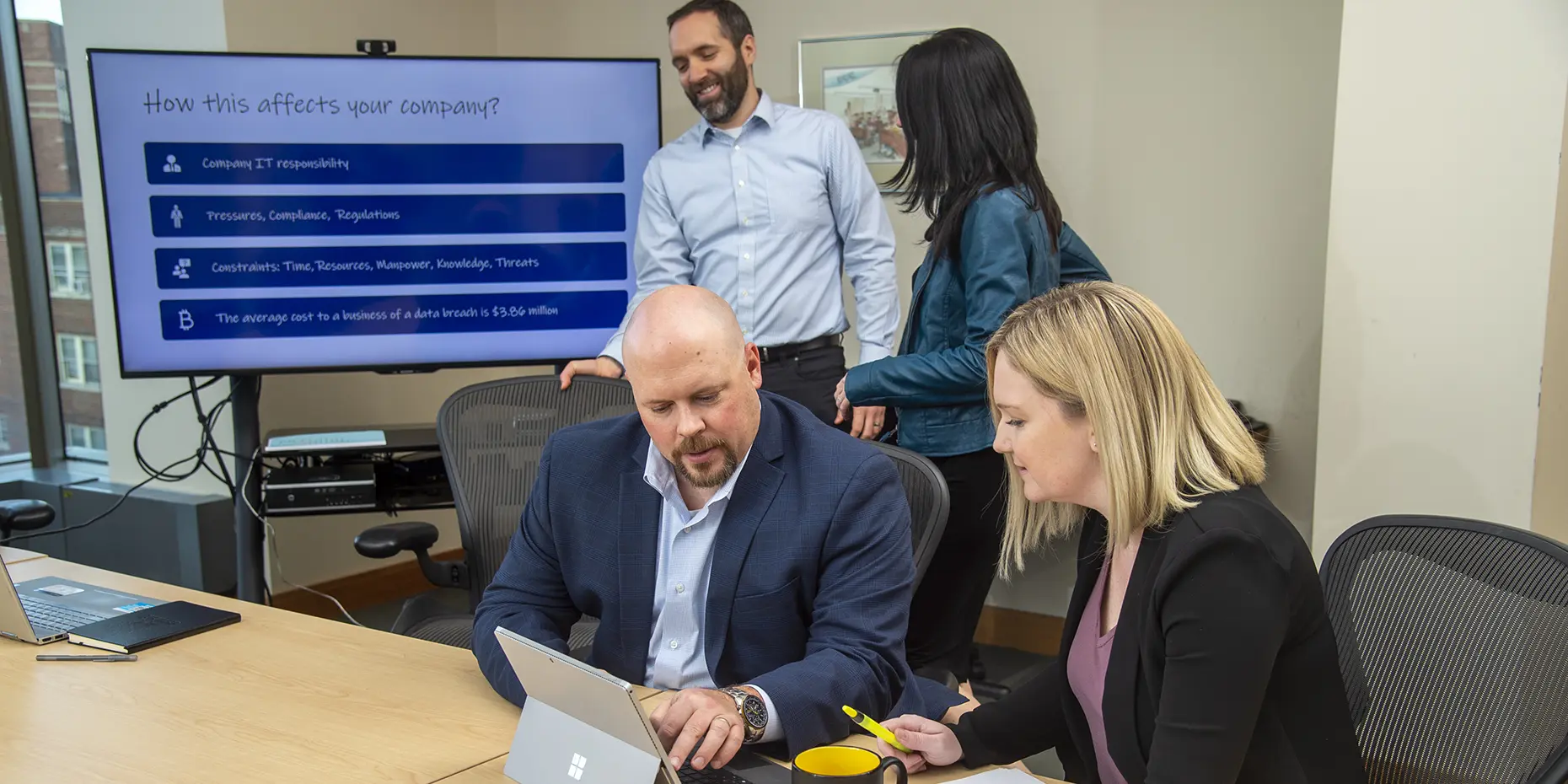Thank you for your interest in earning your Executive MBA at Purdue! The Daniels School of Business is undergoing an exciting transformation. As part of our school’s reimagining, we are streamlining our MBA program offerings. We will focus on providing excellent experiences and return on investment in our online MBA, one-year residential MBA, and Master of Business and Technology (MBT) programs. Please allow us to tell you more about our MBA portfolio and the other exciting changes happening at Purdue University’s business school.

The fully-online flexible MBA program provides a well-rounded core of managerial and business related curriculum taught by Purdue faculty with opportunities to customize through electives. You can work full-time and complete the program in as little as two years.

Seamlessly transition into high-demand, emerging technology roles with the Master of Business and Technology. This 36-hour, one-year program prepares you for tech entrepreneurial and leadership roles. This is a residential full-time program.

Tech-specialists thrive in this quant-based MBA program. Acquire managerial and financial acumen for leaders with a STEM or technology-based background. This is a residential full-time program.

A partnership with the College of Engineering geared at engineers, you can earn a master’s of engineering and your MBA in one year. This is a residential full-time program.
Your personal and professional goals may have you torn between two or more paths of advanced education. We encourage you to compare the strengths and differences of each of the master of business programs side-by-side to make an informed decision.

In addition to our master of business programs, the Daniels School of Business offers residential, specialty master’s programs, online master’s programs, online graduate certificates and professional development short courses.
Explore Specialized Master’s Programs Explore Online Master’s Programs Explore Graduate Certificates Explore Professional Development Courses